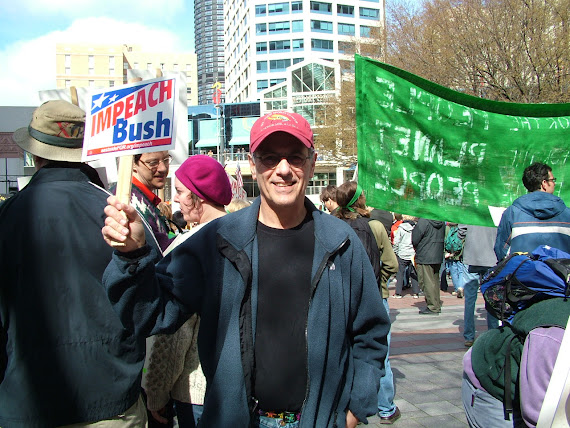Under this statute the government must prove that: (1) an alien had entered or remained in the United States in violation of the law; (2) that the defendant transported the alien within the United States with intent to further the alien’s unlawful presence; and (3) that the defendant knew or recklessly disregarded the fact that the alien was in the United States in violation of the law. United States v. Diaz, 936 F.2d 786 (5th Cir. 1991). The defendant must have the specific intent to further the alien’s unlawful presence. United States v. Rivera, 879 F.2d 1247 (5th Cir. 1989), cert. denied, 493 U.S. 998, 110 S.Ct. 554, 107 L.ED.2d 550 (1989). The defendant does not have the requisite mental state if she merely intends to assist the alien in obtaining legal status. United States v. Merkt, 764 F.2d 266 (5th Cir. 1985) (worker at sectarian shelter for refugees drove aliens from border to San Antonio so they could apply for political asylum).
Mere transportation of an illegal alien, without more, is insufficient as a matter of law to support a conviction under this statute. United States v. Chavez-Palacios, 30 F.3d 1290 (10th Cir.1994); see also United States v. Esparza, 876 F.2d 1390 (9th Cir. 1989) (evidence insufficient as only evidence was that defendant rode in front seat of vehicle traveling in convoy with van transporting aliens). There must be a direct and substantial relationship between the defendant’s act of transportation and its furtherance of the alien’s presence. United States v. Moreno, 561 F.2d 1321, 1322 (9th Cir. 1977)(foreman of reforestation workers who knowingly transported illegal aliens to job sites did not transport in furtherance of the aliens’ illegal presence); United States v. Moreno-Duque, 718 F.Supp. 254 (D.Vt. 1989) (same).
An alien is any person who is not a natural-born or naturalized citizen, or a national of the United States. Fifth Circuit Pattern Jury Charge, Criminal § 2.03 (West 1997). The term "national of the United States" includes a citizen and a person who, though not a citizen, owes permanent allegiance to the United States. Id. While the statute prohibits transportation of someone who has "come to, entered, or remains" in the country unlawfully, the government does not need to prove all three conditions. United States v. Esparza, 882 F.2d 143, 145 (5th Cir.1989), cert. denied, 493 U.S. 969, 110 S.Ct. 418, 107 L.ED.2d 382 (1989). Thus, though the alien may be granted Orders of Release on Recognizance by the INS, he will still be considered to have "come to" and "entered" the U.S. unlawfully. Id.
The alienage of those transported must be proved in order to sustain a conviction under this statue. Alvaro-Machado, 867 F.2d at 212. The government may not introduce the final judgment arising from a conviction for an immigration status crime in order to prove that the alien-transportee is unlawfully in the country. Diaz, 936 F.2d at 788. Typically, proof of alienage is provided through the videotaped depositions of the aliens being transported, a procedure authorized under § 1324(d) of Title 8. The government must nevertheless use "reasonable means" to secure the live testimony of the witness before the video deposition is admissible. United States v. Aguilar-Tamayo, 300 F.3d 562 (5th Cir. 2002)(holding § 1324 (d) constitutional as it does not eliminate requirement of showing witness is unavailable, any error in not requiring government to show reasonable means to acquire witness testimony was harmless). However this statute has not be considered in light of Crawford v. Washington, 541 U.S. 36, 124 S.Ct. 1354, 158 L.Ed.2d 177 (2004).
The alien passenger must also be unlawfully present in the United States. The possibility that aliens can apply for asylum and remain in the country on bond or parole pending the disposition of the applications does not alter their unlawful status in the United States. United States v. Pereira-Pineda, 721 F.2d 137 (5th Cir. 1983); United States v. Rodriguez-Rodriguez, 840 F.2d 697 (9th Cir.1988) (same for possibility of adjustment of immigration status). Similarly, parole status does not confer a lawful entitlement to enter or reside in the United States, so the government's conferring of parole status is irrelevant to the issue of the defendants' guilt or innocence of smuggling illegal aliens. United States v. Alvaro-Machado, 867 F.2d 209 (5th Cir. 1989), quoting Delgado-Carrera v. I.N.S., 773 F.2d 629 (5th Cir. 1985) (in context of expulsion proceeding), and citing United States v. Anaya, 509 F.Supp. 289, 299 (S.D.Fla. 1980) (en banc decision of district judges), aff’d, United States v. Zayas-Morales, 685 F.2d 1272 (11th Cir. 1982); but see United States v. Medina-Garcia, 918 F.2d 4, 7 (1st Cir. 1990)(disagreeing with the Fifth Circuit’s view of parole status, holding that transporter of a holder of a Form I-210 letter conferring 30-day parole did not violate substantive law, though could be prosecuted for conspiracy to violate same). Thus, aliens who were paroled before they left the country, then re-entered in violation of the parole, were unlawfully present in the United States at the time they were transported. Alvaro-Machado, 867 F.2d at 212. It is not a defense to this statute that the defendant was motivated by religious purposes to transport aliens in violation of this statute. United States v. Aguilar, 883 F.2d 662 (9th Cir. 1989), cert. denied, 498 U.S. 1046 (1991).
The defendant's knowledge of the alien's illegal status is an essential element of the offense. United States v. Williams, 132 F.3d 1055, 1059 (5th Cir.1998). Typically, the government relies upon the circumstances surrounding the transporting of the undocumented aliens for proof of the defendant’s guilty state of mind. See United States v. Shaddix, 693 F.2d 1135 (5th Cir.1982)(evidence sufficient where defendant offered work to three Hispanic individuals walking along highway 60 miles from border, carrying cloth sacks, that defendant returned at night with employee to pick up aliens, opened door to employee's car and motioned aliens to enter, and that defendant called investigator for county attorney's office next morning to ask whether employee had been arrested by border patrol). The mere fact that a person has illegal aliens in their vehicle late at night a few miles north of a checkpoint does not establish knowledge of the alien’s illegal presence. United States v. Diaz, 936 F.2d 786 (5th Cir.1991)(evidence insufficient where defendant stopped at 1:30 a.m. after leaving rest stop a few miles north of checkpoint and with six illegal alien passengers).
Friday, November 23, 2007
Subscribe to:
Post Comments (Atom)


2 comments:
Thanks for this good collection of comment forms. There are some great ideas for the next redesign.
Amiable fill someone in on and this fill someone in on helped me alot in my college assignement. Gratefulness you as your information.
Post a Comment